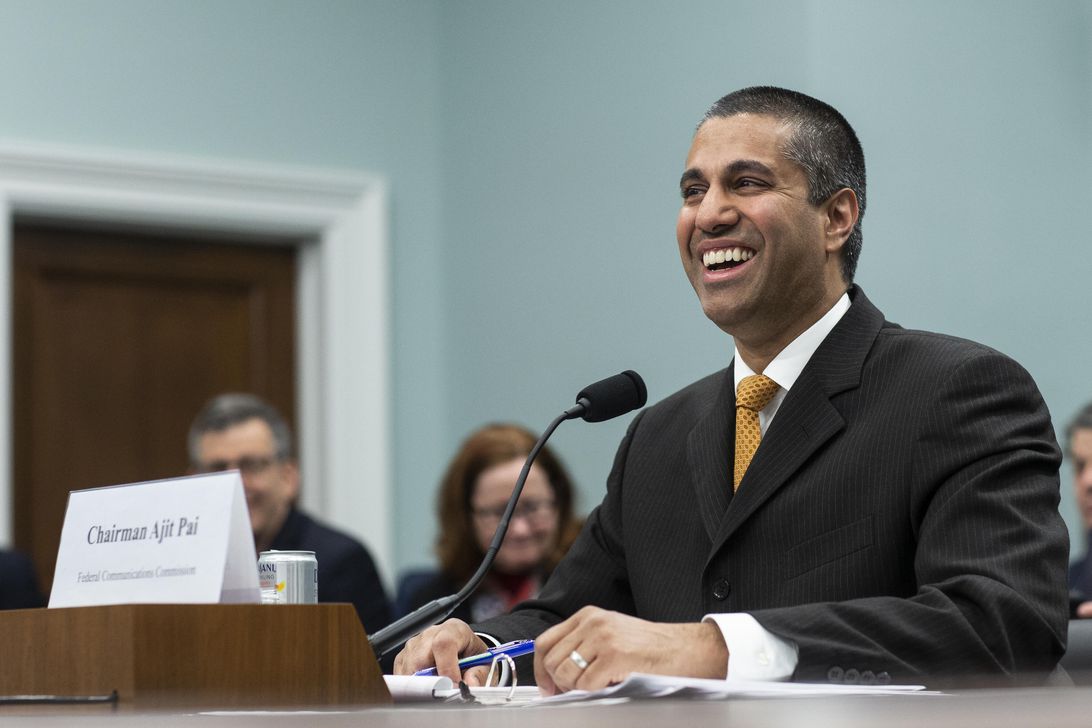FCC Chairman proposes $200 million for COVID-19 telehealth plan
Federal Communications Commission Chairman Ajit Pai has a plan for how to spend $200 million earmarked for telehealth in the coronavirus emergency spending bill Congress passed last week. Pai on Monday circulated a proposal for the COVID-19 Telehealth Program, which is designed to help health care providers pay for broadband service and devices they need to provide telehealth services.

President Donald Trump on Friday signed into law the $2 trillion Coronavirus Aid, Relief, and Economic Security (CARES) Act. As part of that bill, Congress appropriated $200 million to the FCC to quickly disseminate funding to health care providers to use telehealth services to combat the COVID-19 pandemic.
Pai's proposed program would help eligible health care providers purchase telecom and broadband services as well as devices necessary for providing telehealth services. The FCC said the services will be used to directly help COVID-19 patients as well as provide care to patients with other conditions who might be at risk of contracting the coronavirus if they had to visit a health care provider in person.
"As we self-isolate and engage in social distancing during the COVID-19 pandemic, telehealth will continue to become more and more important across the country," Pai said in a statement. "My plan for the COVID-19 Telehealth Program is a critical tool to address this national emergency."
Pai also announced final rules for the longer-term Connected Care Pilot Program, which is studying how telehealth could be a permanent part of the FCC's Universal Service Fund (USF). The program will allocate $100 million from the agency's USF fund over the next three years to help defray the cost of telehealth services among eligible health care providers. The aim of the program is to target programs that provide telehealth services to patients at their homes or mobile locations, with an emphasis on providing those services to low-income Americans and veterans.
The news of these programs comes as Trump extends federal guidelines advising social distancing until at the end of April. The guidelines ask Americans who are older or have underlying health conditions -- as well as anyone who is sick -- to stay home. The guidelines were released on March 16 and were originally expected to last 15 days.
The hope is that by continuing to practice social distancing, the spread of the virus can be slowed so that hospitals and other health care facilities are not overwhelmed. Some areas of the country, such a New York City, are already experiencing surges in cases that are taxing their hospitals. Telehealth services, which keep people home and out of hospitals, clinics, and doctors' offices, are seen as important tools to help curb the spread of the virus.
Details of COVID-19 Telehealth Program
FCC officials said Monday they want to get the $200 million in funding appropriated by Congress out the door quickly. Pai circulated his proposal among all five members of the FCC. The chairman's office didn't indicate when the full FCC would vote on whether to adopt the proposal, but he said he hoped they would act quickly.
"I'm calling on my fellow commissioners to vote promptly to adopt the draft order I circulated today, so that we can take immediate steps to provide support for telehealth services and devices to health care providers during this national crisis," he said.
The proposal allows for a variety of public and private health care institutions to be eligible for the funds. This includes post-secondary teaching hospitals, community health centers serving migrants, local health departments, community mental health centers, not-for-profit hospitals and clinics, and skilled nursing facilities.
Because the money for this program has been allocated directly from Congress and doesn't include constraints placed on other types of funds, such as the USF, the FCC said recipients will be able to use the funds to pay for a wide range of services and equipment, including connected-devices, such as pulse oximeters or glucose monitors, that patients can use in their homes. The FCC also said eligible recipients will not have to abide by competitive bidding requirements, which are in place for other programs funded through USF.
If the proposal is adopted, eligible health care providers will apply for the funds via a streamlined application. FCC officials said they don't expect to allocate anymore than $1 million to any particular project. And the funds can be used to pay for a 100 percent of the incurred cost. This is in contrast to the Connected Care Pilot Program, which will disseminate USF funds over the next three years and will only fund projects up to 85%. The funds for the COVID-19 Telehealth Program will be allocated on a rolling basis until the money runs out or until the crisis ends, the agency said.
The $200 million earmarked by Congress was specifically meant to help pay for telehealth services. FCC officials acknowledged the agency had also asked Congress to consider allocating funds for distance learning initiatives, as millions of school age children are accessing education at home due to school closures. Congress didn't provide additional funding for these purposes, but officials at the FCC said as other spending bills come before Congress, they will make their requests again.